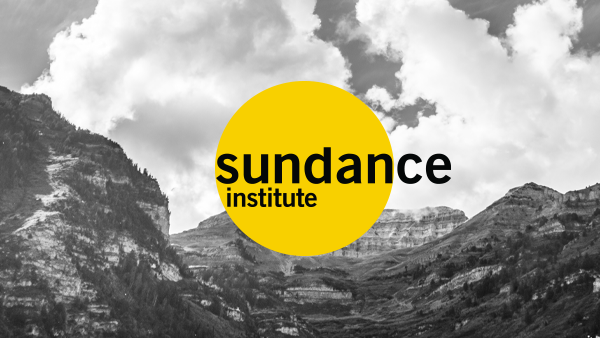Christine Spines, Managing Editor
Sometime around 10:30 am on Day Three of the Sundance Film Festival, a pack of road-weary filmmakers piled out of a snow-shrouded bus and into a halcyon vision of rustic repose otherwise known as the Directors Brunch. As they were ushered into a large open-air converted barn at the Sundance Resort where tea and sympathy (and a mid-morning feast) awaited them, the group seemed to exhale a collective sigh of relief — as if this were the creative homecoming they’d been hoping for much of their professional lives. Or, in the immortal words of David Byrne (and the title of one of this year’s Premiere selections): This must be the place.
 Robert Redford at the 2012 Directors Brunch. Photo by Chad Hurst.
Robert Redford at the 2012 Directors Brunch. Photo by Chad Hurst.The annual Director’s Brunch is arguably the Festival’s defining event. At once intimate and inclusive, cloistered and communal, high minded and deeply grounded – the Directors Brunch is designed to bring each year’s matriculating class of filmmakers together under one roof to compare notes, commiserate, and celebrate each other’s accomplishments.
The journey to this year’s confab mirrored the endurance test that is independent filmmaking. The thirty-six mile drive to the Sundance Resort proved more treacherous than usual due to near white-out conditions on the road, causing one of the busses to come to a halt on the side of the road. “We all jumped out and started trying to figure out what was wrong,” laughs Armando Bo, who directed The Last Elvis, which is playing in the World Dramatic Competition. “Of course we’re all directors, so we were all trying to tell each other what to do.”
 Director Armando Bo (The Last Elvis). Photo by Chad Hurst.
Director Armando Bo (The Last Elvis). Photo by Chad Hurst.Once all the filmmakers had taken their seats, Sundance Institute Founder and President Robert Redford welcomed the directors with a story of his own arduous path from movie stardom to creative fulfillment behind the camera. “I had gotten to a point where I wanted to tell my own stories,” Redford recalled. “I wasn’t easy, but it didn’t matter because I just loved the feeling of having to depend on my own creative resources to transcend some of the obstacles. I loved coming together with the crew to make the most of what very little money and time we had to work with. That experience was so important to me that, over time, I wanted to give back and find a way to help other people do that.”
Cut to: The Sundance Film Festival, which was initially called the Utah/US Film Festival. “At the time I said, ‘We’ll create a festival made exclusively for independent film — the only one in the world,” said Redford. “So here we are. And the reason we’re here is because of you, the filmmakers. I shared with you my journey to this place and now you have your journey ahead of you. There’s a lot of hype around these films and sometimes people get nuts. But be aware that that hype may not continue. In the future it’s going to be about how much you’ll be able to persevere when that hype evaporates. The heart of the game is your work and maintaining that work and getting it seen.”
Before heading back into the blizzard conditions, World Dramatic Competition juror Julia Ormond puzzled over the question of how to describe Sundance in one word. “Redford,” she said, pausing to collect her thoughts. “He walks the spirit of Sundance. He’s not just saying it he’s actually doing it. He’s got class, smarts, and wit. He had the understanding of the need for this space. And now he’s the person who is opening up this space to whoever wants to come into it. My sense is that everything comes from him.”




